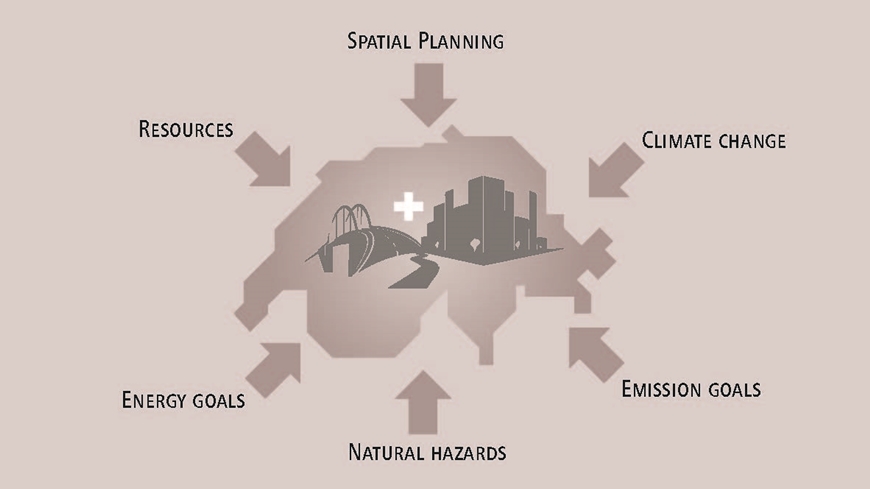Developing Switzerland's Built Infrastructure
Switzerland's' built infrastructure with all its buildings, roads and railroads, energy plants, supply and disposal networks is a central pillar of our prosperity. Due to numerous factors such as climate change or natural hazards, however, it has been under great pressure to adapt for some time.

In such a complex field, there are numerous actors and even more activities. What is missing, however, is a systemic overview. It should cover all influences – current ones, but also anticipated ones – and the necessary measures in areas such as transport, energy supply, maintenance and conversion of the building stock, to name but a few, and identify options for action.
Such a bird's eye perspective is necessary to preserve the Swiss building stock and make it fit for the future. It must be geared to the central needs of the future, which can, of course, only be anticipated from today's perspective and thus contain a certain fuzziness. But only such an overall view allows us to weigh the many different challenges against each other and thus prioritize necessary measures. From this, we can then derive a kind of roadmap for the coming decades, which we want to present here – so that Switzerland's' built infrastructure will still be up to its tasks in 20, 30 or 50 years.
The project team behind the report "Entwicklung Bauwerk Schweiz" thus sets itself the goal of ensuring the high quality of Switzerland's' built infrastructure and of promoting and accelerating its sustainable development. The project has its origins in preliminary work by many experts over the last ten years and has since gone through several phases. On these pages you will find the combined knowledge that has been documented in the course of the project – along with a current roadmap and the recommendations that had been derived, adapted to today's situation.
The expert team: Prof. Dr. Laurent Vulliet, Peter Matt, Dr. Hans Rudolf Ganz, Dr. Fritz Hunkeler, Dr. Peter Richner (left to right)

